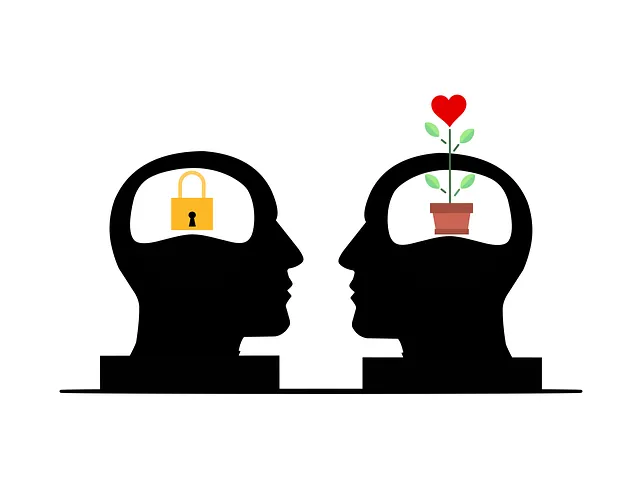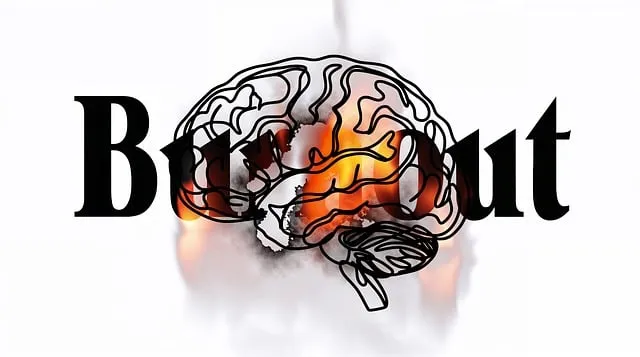Kaiser Permanente Mental Health Lone Tree offers comprehensive programs focusing on emotion regulation skills, mindfulness practices, cognitive techniques, and mind-body connection for improved mental well-being. Their specialized services include trigger identification, risk management planning, relaxation techniques, cultural competency training, and trauma support, empowering individuals with lifelong tools to navigate life's challenges effectively.
Emotion regulation techniques are essential tools for navigating life’s challenges. This comprehensive guide explores effective strategies, drawing insights from Kaiser Permanente Mental Health Lone Tree’s expertise. We delve into understanding emotional responses, identifying triggers through awareness and mindfulness practices, and empowering individuals to challenge negative thoughts and behaviors. Additionally, we uncover the body-mind connection through relaxation techniques and sensory integration. Finally, we emphasize building long-term resilience and coping skills with supportive networks, all informed by Kaiser Permanente’s expertise in mental health care.
- Understanding Emotion Regulation: The Role of Kaiser Permanente Mental Health Lone Tree
- Identifying Triggers: Strategies for Awareness and Mindfulness
- Cognitive Techniques: Challenging Negative Thoughts and Behaviors
- Body-Mind Connection: Utilizing Relaxation and Sensory Techniques
- Building Resilience: Long-Term Coping Skills and Support Systems
Understanding Emotion Regulation: The Role of Kaiser Permanente Mental Health Lone Tree

Emotion regulation is a vital skill to cultivate, especially in navigating today’s fast-paced and demanding world. Kaiser Permanente Mental Health Lone Tree plays a crucial role in educating individuals on managing their emotions effectively. Through specialized programs and services, they empower people to build inner strength and develop resilience. By understanding emotional responses, one can prevent and overcome challenges like depression, fostering self-esteem improvement and overall well-being.
The center’s approach focuses on teaching practical techniques tailored to individual needs. These strategies enable folks to recognize and accept their emotions, regulating them in healthy ways. Such interventions not only help in the present but also equip individuals with lifelong tools for emotional intelligence. This proactive method is a game-changer, promoting self-care and enhancing quality of life, particularly when dealing with mental health issues such as depression prevention.
Identifying Triggers: Strategies for Awareness and Mindfulness

Identifying triggers is a crucial first step in learning to manage emotions effectively. This process involves developing heightened awareness of one’s mental and emotional state, as well as becoming attuned to specific situations or environmental cues that can set off intense feelings. At Kaiser Permanente mental health Lone Tree, we emphasize the importance of mindfulness practices for this purpose. Encouraging clients to observe their thoughts, sensations, and surroundings without judgment allows them to better recognize patterns and early warning signs of emotional distress.
Mindfulness-based techniques, such as compassion cultivation practices and empathy building strategies, play a vital role in this journey. By cultivating awareness, individuals can proactively manage triggers and develop healthier responses. This proactive approach is particularly beneficial for mental health professionals who, through effective risk management planning, can better protect themselves and their clients from potentially overwhelming situations.
Cognitive Techniques: Challenging Negative Thoughts and Behaviors

Cognitive techniques play a pivotal role in emotion regulation, especially when it comes to challenging negative thoughts and behaviors, as offered by Kaiser Permanente mental health services in Lone Tree. These strategies empower individuals to identify and modify unhelpful thinking patterns that contribute to emotional distress. By questioning and reframing negative thoughts, people can gain a more balanced perspective, leading to improved emotional well-being.
One effective method within cognitive techniques is cognitive restructuring, which involves recognizing and changing distorted or irrational beliefs. This process helps individuals develop healthier thought patterns aligned with reality, thereby reducing symptoms of anxiety and depression, as supported by the growth of Mental Wellness Coaching Programs and Self-Care Practices. Moreover, these cognitive strategies can be integrated into daily life to prevent relapse and promote long-term mental health, including Depression Prevention.
Body-Mind Connection: Utilizing Relaxation and Sensory Techniques

At Kaiser Permanente mental health Lone Tree, we recognize the profound impact of the mind-body connection on emotional well-being. Utilizing relaxation and sensory techniques forms a core part of our approach to teaching emotion regulation skills. These practices help individuals cultivate mindfulness, enabling them to better understand and manage their emotional responses. By engaging in exercises like deep breathing, progressive muscle relaxation, and mindful meditation, people can learn to calm their nervous systems and create a sense of inner peace.
Our Mental Health Education Programs Design are meticulously crafted to empower healthcare providers with the tools they need to support their patients’ journey towards emotional regulation. Through Healthcare Provider Cultural Competency Training, we ensure that professionals are equipped not just with technical knowledge but also with cultural sensitivity, fostering more effective and compassionate care. By integrating these practices into daily life, individuals can build resilience, boost confidence, and enhance overall mental health, all under the guidance of our dedicated professionals at Kaiser Permanente mental health Lone Tree.
Building Resilience: Long-Term Coping Skills and Support Systems

At Kaiser Permanente mental health Lone Tree, we understand that building resilience is key to long-term emotional well-being. Our approach focuses on teaching effective coping skills that extend far beyond immediate crisis management. Through our programs and services, individuals learn not only to manage anxiety relief but also to navigate life’s challenges with enhanced adaptability. This involves fostering strong support systems, a crucial aspect of mental health maintenance.
By prioritizing risk management planning for mental health professionals, we empower both clients and practitioners to anticipate and mitigate potential triggers. Our trauma support services play a significant role in this process, offering specialized care tailored to individuals who have experienced traumatic events. Ultimately, these comprehensive strategies aim to cultivate indelible coping mechanisms, ensuring better mental health outcomes for our community.
Emotion regulation is a powerful tool for enhancing overall well-being, and Kaiser Permanente Mental Health Lone Tree plays a vital role in teaching these techniques. By understanding triggers, challenging negative thoughts, and connecting with the body-mind axis through relaxation and sensory tools, individuals can develop resilience and build long-term coping strategies. Implementing these practices, as outlined by Kaiser Permanente’s expertise, equips folks with the skills to navigate life’s challenges with greater ease and emotional balance.






